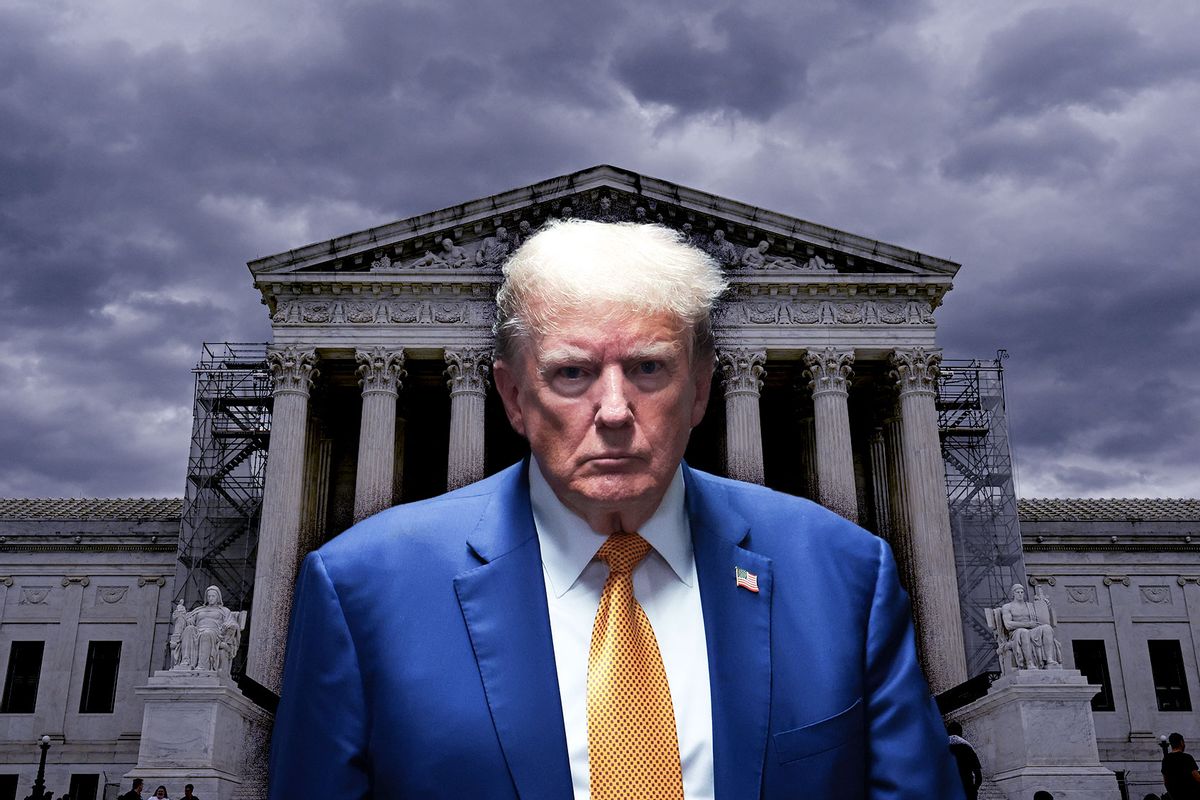The Supreme Court on Monday ruled 6-3 that Donald Trump cannot be criminally prosecuted for "official acts" he took when in office, stating that presidents enjoy "absolute immunity from criminal prosecution" and sending the case back to U.S. District Judge Tanya Chutkan to figure out which acts are official and unofficial.
All three liberal justices dissented from the ruling, with Justice Sonia Sotomayor arguing that the ruling "makes a mockery of the principle, foundational to our Constitution and system of Government, that no man is above the law."
"Because our Constitution does not shield a former President from answering for criminal and treasonous acts, I dissent," Sotomayor wrote.
It is not immediately clear how the ruling will affect Trump's prosecution for actions taken on Jan. 6, 2021 but the ruling is expected to delay court proceedings even further, possibly beyond the November election.
Politico's Kyle Cheney tweeted that the ruling "essentially wiped out" the portion of the indictment related to Trump's plot to have the Justice Department intervene on his behalf in his post-election crusade. Under the ruling, "Trump is absolutely immune from prosecution for the alleged conduct involving his discussions with Justice Department officials," wrote Georgia State Law Prof. Anthony Michael Kreis.
https://x.com/kyledcheney/status/1807784325288513644
Trump was indicted by special counsel Jack Smith in August of last year on four counts for conspiring to overturn the election on Jan. 6, when a mob of his supporters attacked the U.S. Capitol building during the electoral college certification process that ultimately awarded Joe Biden the presidency.
The central question in the case was whether Trump had absolute immunity for actions he committed as president. Trump's attorneys argued that his efforts to overturn the 2020 election were official acts as president, qualifying him for a degree of immunity from prosecution even if absolute immunity wasn’t found.
We need your help to stay independent
When the trial judge, Chutkan, and the D.C. Court of Appeals each rejected Trump’s claim to immunity, he appealed to the Supreme Court, which agreed to take the case in February, holding arguments far enough out to scratch the original March 4 trial date.
In oral arguments back in April, justices prodded Trump’s lawyers over the reaches of immunity, prompting the attorneys to take legally controversial stances.
When Sotomayor asked whether the assassination of a political rival would count as an official act, Trump lawyer John Sauer noted that it would “depend on the hypothetical.”
“From what we can see, that could well be an official act,” he told justices, also admitting that the Trump team’s framework of immunity could hypothetically shield a president who took a bribe in exchange for an ambassadorship or staged a military coup, again depending on context.
Sotomayor in her dissent on Monday wrote that the court seemingly approved a president assassinating a political rival.
“The president of the United States is the most powerful person in the country, and possibly the world,” wrote Sotomayor. “When he uses his official powers in any way, under the majority’s reasoning, he now will be insulated from criminal prosecution. Orders the Navy’s Seal Team 6 to assassinate a political rival? Immune. Organizes a military coup to hold onto power? Immune. Takes a bribe in exchange for a pardon? Immune. Immune, immune, immune.”
Justice Ketanji Brown Jackson in her own dissent wrote that the ruling "breaks new and dangerous ground."
"Even a hypothetical President who admits to having ordered the assassinations of his political rivals or critics, or one who indisputably instigates an unsuccessful coup, has a fair shot at getting immunity under the majority’s new Presidential accountability model," she wrote.
The outcome is of course a boost to Trump, but the court even taking up the case was itself a tremendous help to the Trump campaign, which is committed to delaying further legal action against the former president after a New York jury found him guilty of falsifying business records in an attempt to influence the 2016 election.



Shares